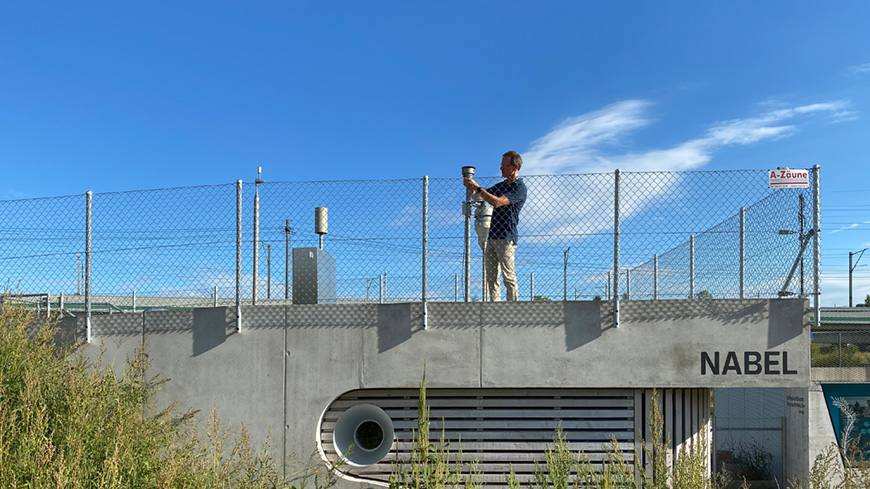Public health protection
Lowering of air pollutant limits recommended

The Federal Commission for Air Hygiene (FCAH) last assessed the ambient air quality standards of the Air Pollution Control Ordinance (OAPC) in its 2013 report 'Fine Particulate Matter in Switzerland'. Based on the current state of knowledge, the FCAH now concludes in its latest air quality report that Switzerland's ambient limit values need to be adapted to fulfil the requirements of the Environmental Protection Act.
The ambient air quality standards currently stipulated in the OAPC largely correspond to the WHO's 2005 guideline values, which reflect the state of knowledge at the time. However, research over the past 20 years has shown that air pollutants have adverse health effects even at significantly lower concentrations. The WHO therefore lowered the recommended levels in its 2021 global air quality guidelines following a comprehensive review of current knowledge.
Switzerland's Environmental Protection Act calls for measures on ambient limit values and air pollution that appropriately protect the environment and the health of the entire population, including particularly sensitive groups. The FCAH therefore recommends amending the Ordinance for six pollutants (SO2, NO2, CO, O3, PM10, PM2.5) to align the ambient air quality standards with the WHO's revised levels.
The FCAH's recommendations are largely in line with the WHO's evidence-based air quality guideline levels. These adjustments will bring Switzerland's ambient air quality standards in line with the protection requirements of the Environmental Protection Act. Air pollution levels must continue to be permanently reduced. Widespread compliance with the stricter ambient limit values will therefore also require a sustainable reduction in emissions.
The FCAH is a committee of experts in the field of air pollution control. As an extra-parliamentary committee of experts, it is appointed by the federal government and performs public tasks for the government and its agencies. The Commission advises the Federal Department of the Environment, Transport, Energy and Communication (DETEC) and also the Federal Office for the Environment (FOEN) on scientific and methodological questions relating to air pollution control and on the effects of air pollution on human health and the natural world. With Brigitte Buchmann and Lukas Emmenegger, Empa provides two of the Commission's 14 members. To assess the new WHO guideline values, the FCAH has largely relied on the measurements of the National Air Pollution Monitoring Network (NABEL), which is operated by Empa and the FOEN and will continue to be central to the assessment of air quality and the effect of measures to reduce emissions.
Prof. Dr. Dr. Nino Künzli
FCAH President
Phone +41 79 535 85 25
Dr. Lukas Emmenegger
Empa – Air Pollution / Environmental Technology
Phone +41 58 765 46 99
